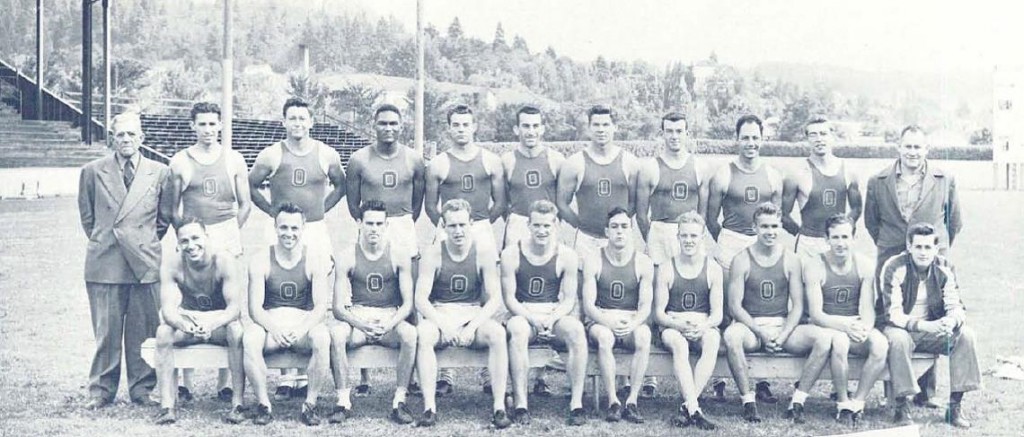CLIFFORD F. JOHNSON: GROUNDBREAKING MASTER’S THESIS ON RACIAL BIAS IN NEWSPAPER REPORTING

Clifford F. Johnson is our third feature in our series honoring Black History Month that highlights the work of historian Herman L. Brame. Johnson was raised in Illinois and decided to join the US army after graduating from high school. While in the army, Johnson served at Fort Lewis, Washington during World War II. During his time there, he faced racial segregation. Recreational facilities and the chapel were segregated and he, along with a large number of other African Americans, felt restricted while at Fort Lewis. However, in 1945, a basketball team comprised of Johnson and other African Americans beat the visiting Harlem Globetrotters in two out of their three games. In 1946, Johnson was honorably discharged as a chief warrant officer and became an undergraduate student at the University of Oregon in the same year. There he would have a successful academic career that would land him national attention.
After World War II, Johnson was one of a small but growing population of African American students in higher education institutions in Oregon. Johnson was a dedicated athlete and student at the University of Oregon. He was a broad jumper for the 1946 UO track team and was a journalism student when the University of Oregon School of Journalism was gaining national attention as one of the most prestigious journalism schools in the United States. Johnson was also a member of the Sigma Delta Chi journalism fraternity and eventually graduated with a bachelor of arts in journalism with honors in 1948.

1946 UO Track Team (Johnson seated front row, far left. Seated next to Coach Bill Hayward)
Oregana 1947
Johnson continued his academic career as a graduate student in the School of Journalism in 1949. As a confident journalism student, he wanted to test his writing ability and so competed in a national journalism contest that was sponsored by the American Newspaper Publisher’s Association. Johnson placed second in the competition and attracted national attention. He was the first “negro” winner the competition had seen in its six years of existence. It was also likely that he was the first winner from Oregon.
In addition to his success in the journalism competition, Johnson also earned further praise for his graduation in the same year. 1949 was a year of an all-time high in African American graduates from Oregon colleges, and the NAACP and freelance writer Kathryn Bogle from The Oregonian paid particular attention to Johnson and a few other African American graduates in a featured newspaper article. Johnson’s praised thesis titled, “An Analysis of Negro News and Non-News Matter Appearing in Four Oregon Daily Newspapers during the years 1931, 1936, 1941, 1945, and 1948” was one of the first systematic studies on media bias. It has been and continues to be cited by various publications including: “Blacks in the State of Oregon 1788-1971,” by Lenwood G. Davis, 1971, “Protest at the Post, Coverage of Blacks in the Washington Post Magazine,” by Thom Lieb, 1988, and “History of Portland and Oregon,” City of Portland Planning Bureau, rev. 2015.
Although limited information is known about Clifford Johnson’s professional career after graduation, we do know that he continued seeking opportunities to exercise his talented writing abilities. Johnson was also a member of Sigma Delta Pi, a national Spanish honorary fraternity, and showed interest working in South American journalism in Argentina and Brazil. Furthermore, in 1949, he was also the managing editor for the “Bulletin of the U.S. Army Medical Department, Combat Psychiatry,” which was a monthly publication of the Office of Medical History. Through determination and his passion for journalism, Clifford F. Johnson became a national leader in the study of racial bias in media reporting in the United States.
Information for this article was collected from the following source:




No comments:
Post a Comment